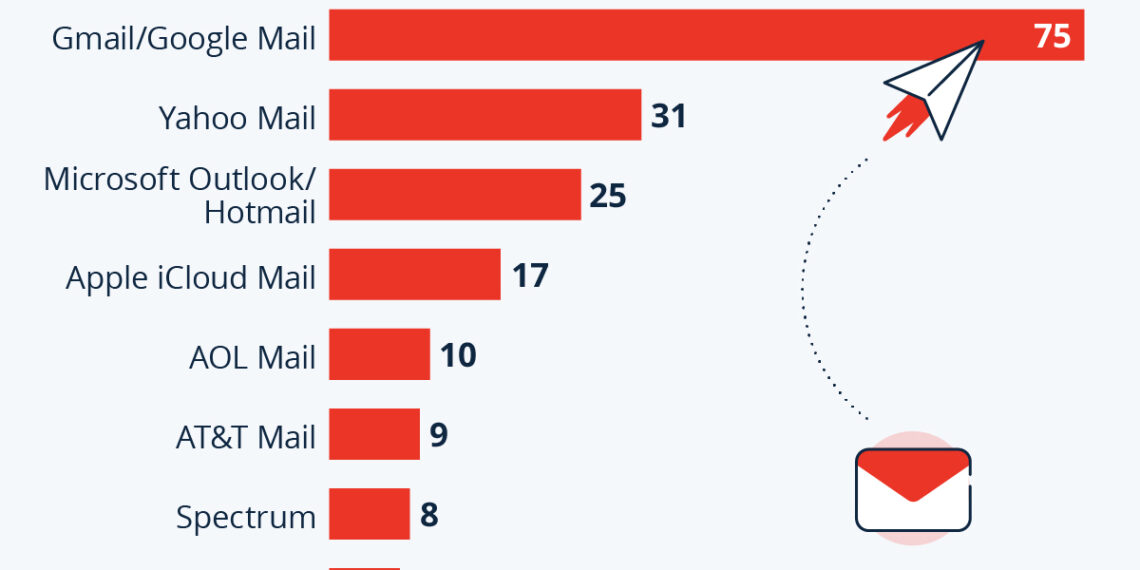Select Language:
Gmail’s Dominance in the U.S. Email Market
The landscape of email services in the United States is heavily dominated by Gmail, a product of Google that has become synonymous with online communication. This blog explores the current market share of Gmail, the public’s perception of its use, and recent developments with the introduction of the Gemini AI assistant.
Gmail’s Market Share
According to recent data from Statista Consumer Insights, Gmail is utilized by approximately 75% of surveyed individuals in the U.S. This statistic highlights the profound integration of Gmail into the daily lives of users, making it the primary email service for a significant portion of the population. The overwhelming preference for Gmail raises several questions about why users favor this platform over others.
Comparative Analysis of Email Providers
In stark contrast to Gmail’s impressive market share, Yahoo Mail holds a distant second position, with only about 33% of Americans aged 18 to 64 indicating they utilize this service. Other email providers such as Microsoft Outlook, AOL Mail, and various telecom-related email services are also part of the competitive landscape, but they trail behind. Particularly, AOL Email maintains a surprisingly consistent presence, catering to about 10% of users within this demographic, despite being perceived as outdated.
User Concerns Regarding AI Integration
Recently, the announcement by Google regarding the integration of its Gemini AI assistant into Gmail has sparked significant public concern. Users voiced worries about privacy as the generative AI’s capabilities mean it could potentially process sensitive personal emails. Although Google promised enhancements in email management—such as faster access to relevant information by prioritizing frequent contacts and previously read emails—the incorporation of AI into personal email communications raises legitimate privacy issues.
The Dual-Edged Sword of AI Enhancement
While the benefits of AI are apparent, such as improved organization and efficiency in email management, the prospect of AI analyzing personal correspondence is troubling for many. Users fear that their data may be processed not only for immediate improvements but also for broader AI training purposes. This apprehension about data privacy can undermine user trust, particularly if they believe that their emails are being used for purposes outside their control.
Public Reactions to AI in Gmail
The introduction of AI features into familiar applications like Gmail can polarize public sentiment. While some users may embrace the efficiency and convenience these enhancements promise, others may find it invasive. The idea that a generative AI would be sifting through personal communications understandably gives rise to anxiety about data security and personal privacy.
Mixed Reviews on AI Integration
As Google promotes the advantages, feedback from the user community tends to be mixed. Some applaud the potential for smarter email management, while others are hesitant to allow an algorithm into their personal communications. This dichotomy reflects broader societal concerns regarding AI, particularly in areas where personal data plays a critical role.
Conclusion
As Google continues to enhance its services, the challenge will be balancing user convenience with the essential need for privacy and security. The growing capabilities of AI, while promising increased efficiency, must be introduced with careful consideration of how they interact with user data. The public’s response to these changes will shape the future of email services and AI applications alike.
In this blog post, we’ve explored the current status of Gmail’s market influence, the integration of AI technology, and the accompanying user concerns, aiming to provide a comprehensive overview of the email landscape in the United States.







